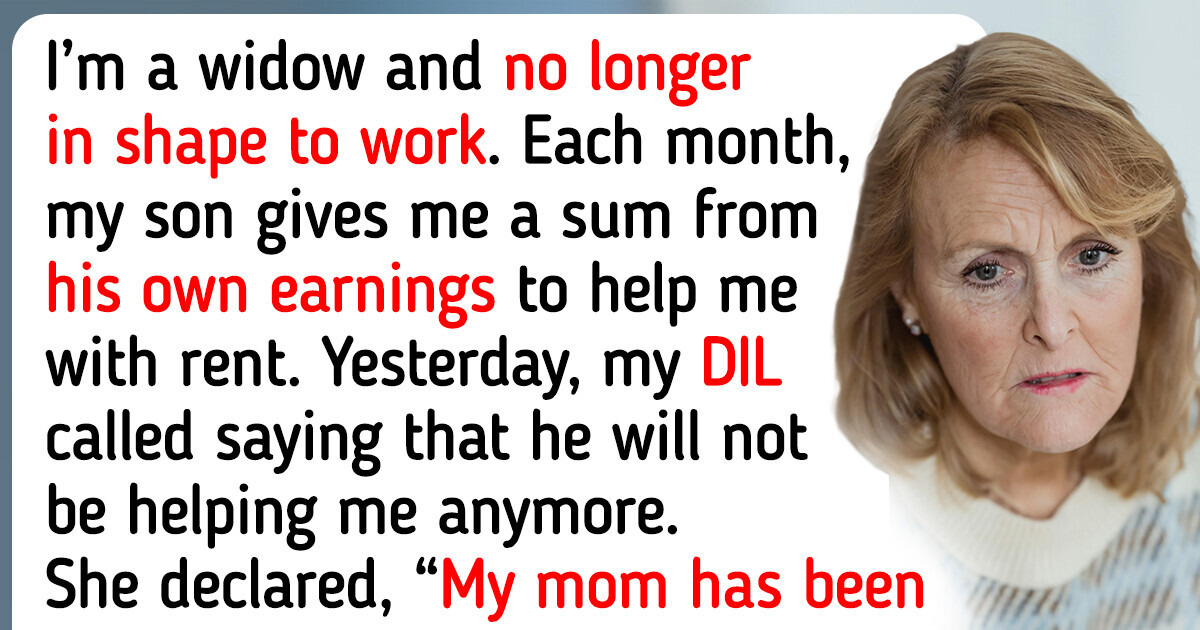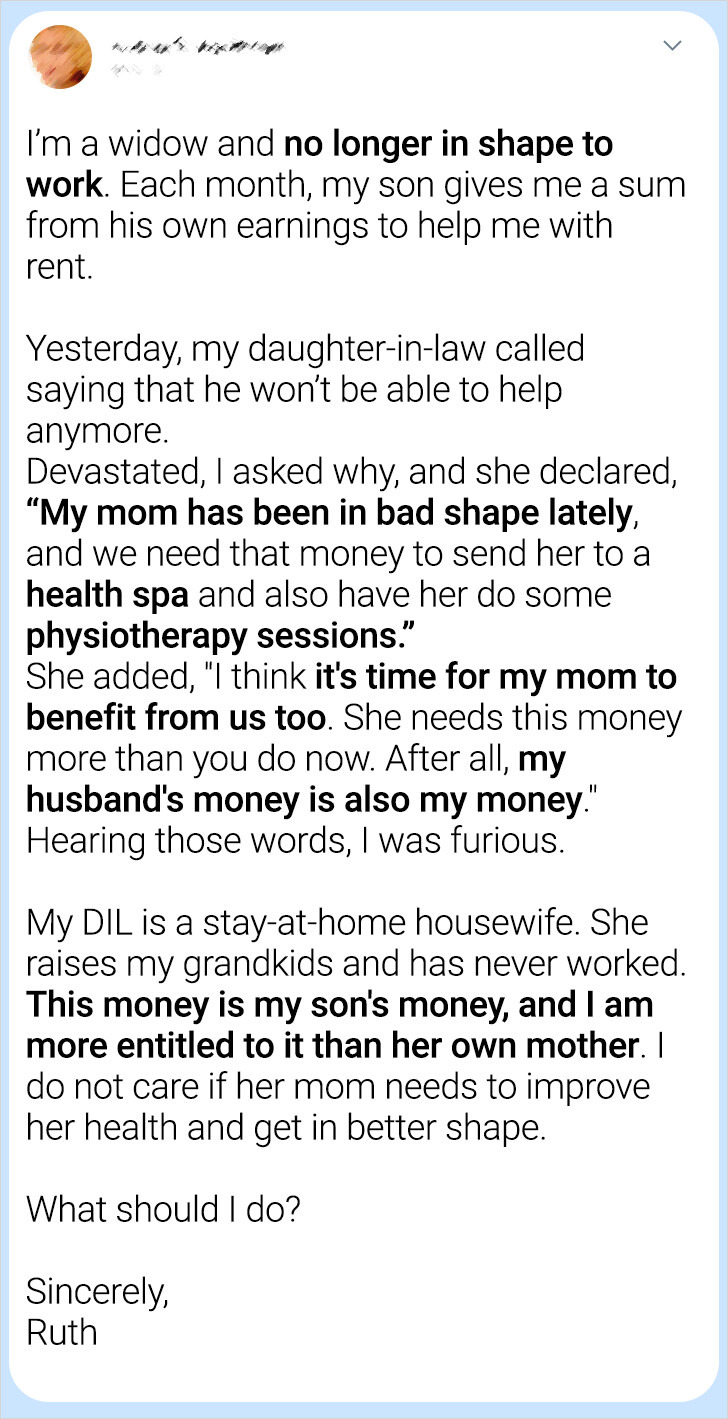I think that your son should have left ALL OF YOU. Wifey can go to work and YOU and HER mom, can take turns watching the kiddies. Your SON can do something for himself, for a change.
My Son Chose to Help His Mother-in-Law Over Me — I’m Furious

It can be incredibly distressing for a mother to feel estranged from her child, especially when financial support becomes an issue. Ruth finds herself in a sensitive situation where her son has redirected his financial assistance towards his mother-in-law. She believes she deserves her son’s support more and has reached out to us seeking guidance.
Here is Ruth’s letter:

going to the spa isn't something that's essential to life, but having a roof over your head is necessary.
your daughter-in-law is doing that just to be mean to you. Talk to your son in private and ask if his mother-in-law is that "bad"
Say that you understand that you are on a limited budget, but shouldn't your wife contribute to the household because she says that it is her money that he earns as well. Shouldn't she get a job so she can give her mother money so she can go to the spa and have a good time...
A mother is not at all entitled to the money of her children. If her son and his wife agreed, that the wife will not have a job but do the care work, that's their business. They are also not obliged to give money to any of the mothers.
Thank you for sharing your story with us, Ruth! Here are some tips that we hope can be useful.
Open communication.
Initiate a calm and respectful conversation with your son and daughter-in-law. Express your feelings of shock and disappointment upon hearing the news about the financial support being redirected to her mother’s health spa.
Share the significance of this support for your livelihood and well-being. Emphasize the importance of clear communication and finding a solution that considers everyone’s needs and limitations.
Seek mediation.
Consider involving a neutral third party, such as a counselor or mediator, to facilitate a constructive dialogue between you, your son, and your daughter-in-law.
A mediator can help navigate the emotions involved and guide the discussion towards a fair resolution. This approach can prevent misunderstandings and promote understanding of each other’s perspectives, ultimately fostering harmony within the family.
Explore alternative support.
Investigate alternative sources of financial assistance or resources available to you. This could include government benefits, community programs, or support groups for widows.
By diversifying your sources of support, you can reduce dependence on your son’s earnings and maintain a sense of autonomy over your financial situation.
Legal consultation.
If the situation remains unresolved, and you feel your rights are being disregarded, seek advice from a legal professional specializing in family law or elder rights. They can assess your situation, provide guidance on your legal rights regarding financial support from your son, and explore potential avenues for recourse or negotiation.
Taking proactive steps to protect your interests can offer peace of mind and ensure that your needs are adequately addressed.
Roberta, like Ruth, experienced deep distress due to her daughter-in-law’s actions. She expressed a desire to move into her son’s home, which her daughter-in-law accepted, but with conditions that Roberta found demeaning. For the full account of her story, please see here.
Comments
Related Reads
My Husband Betrayed Me So Hard That I Almost Died, Now Everything Blew Up in His Face

I Excluded My Mom From My Wedding Ceremony to Please My Mother-in-Law

A Husband Refused to Help His Pregnant Wife and Said “My Mom Comes Before You”

My Teenage Daughter is Shaking My Confidence as a Woman— I Decided to Send Her to Boarding School

My MIL Said a Nasty Thing About Me to My Daughter, and I Decided to Cut Her Off

12 True Events That Sent Shivers Down Our Spines

My Husband Was Hiding His Best Friend From Me, I Found Out Why, and I’m Livid

I Canceled My Husband’s Birthday Party After Hearing What He Secretly Told My Daughter

15 People Who Were Angels Sent on Earth

HR Fired Me Right Before My Vacation, So I Used It Against Them

My Sister Tried to Turn Our Family Cabin Into Her Free Resort, So I Changed the Rules

20+ Gifts That Prove It’s the Thought That Truly Counts




